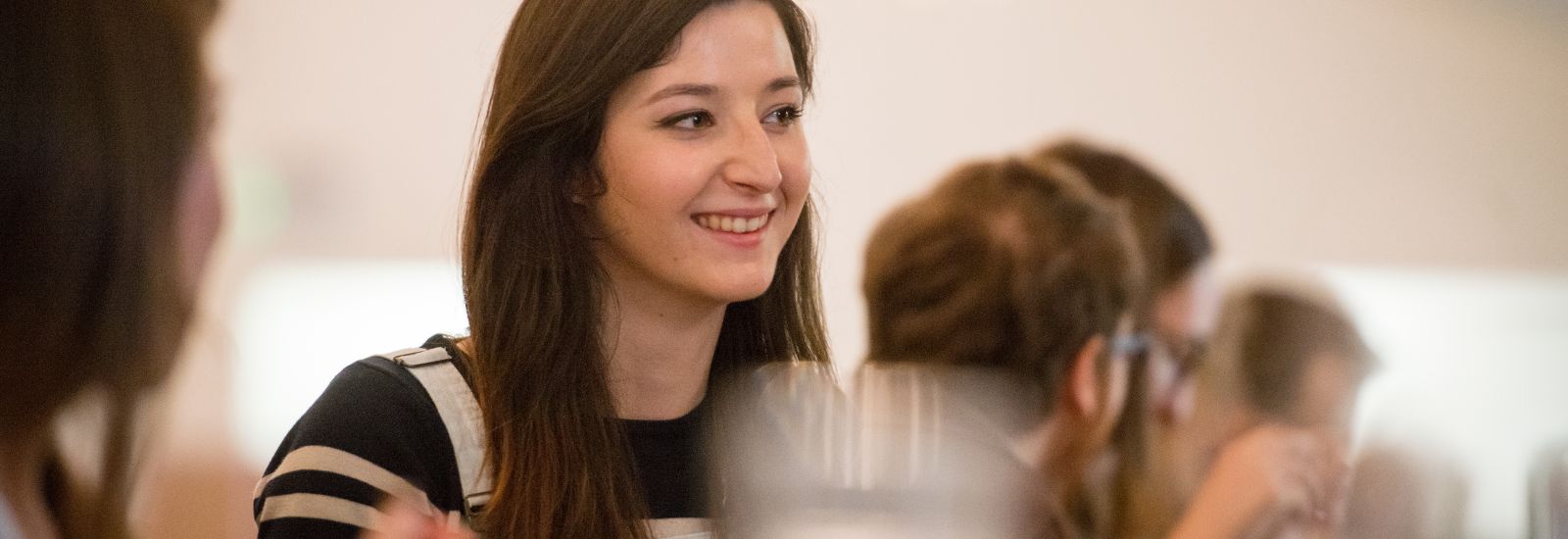
Help is on hand
Oxford terms are exhilarating, but can also be pretty intense. It's important you know there are lots of people who will want to help if times get tough or you find yourself running out of steam. You can always talk to friends, but there is also trained and professional support available.
And it's not just about when things go wrong - there are so many different communities at Oxford that you will find lots of ways to build your support network and spend time with people who share your interests - whatever motivates you and whoever you want to be.
Support from the University
Alongside your college support network, there are also lots of different ways that the University can help you. Your wellbeing is important to us; we want you to enjoy your time studying with us.
Here are just some of the services that any student can use whilst they are here. They are all free, and open to everyone:
University Counselling Service
The Counselling Service offers free and confidential support to help students gain insight into any difficulties they may be experiencing.
Oxford Nightline
Nightline is a confidential listening service run by trained students, for students. The service is confidential, and operates from 8pm to 8am every day of term.
Peer Support
Student Peer Supporters - including Rainbow, Peers of Colour, Peers of Faiths and Disability Diversity Peers - are available in many colleges and departments to talk with you informally about anything that is concerning you.
All Peer Supporters have been carefully selected and trained to take up this role and receive ongoing support and supervision from the University Counselling Service.
Chaplaincy
Chaplaincies in colleges and the wider university provide support for students of all faiths and none, and students have access to a wide variety of faith groups.
Health advice and guidance
There is a great deal of health advice and guidance. Your college will have a GP and maybe a college nurse on hand, but if you do want to register with a different GP then the college can help you. It can also help you find a dentist or optician, or get your vaccinations. The University also has advice on sexual health, information about keeping well, and dealing with medical emergencies.
Disability Advisory Service
The University's Disability Advisory Service can provide a range of support for students with disabilities including mental health conditions, long term illnesses, an autism spectrum condition, dyslexia, dyspraxia, and other Specific Learning Difficulties (SpLDs).
There are a wide range of individual adjustments and study support available for disabled students, and the Service will help you determine what support is appropriate for you at Oxford.
Oxford SU Student Advice
Oxford SU Student Advice is free, confidential, and independent from the University and your college. To get in touch with an Adviser, please use the 'Contact Us' form.
Other useful information and guidance
Whether you need to know when terms start, need advice about your visa, or want to talk to someone about financial assistance, then there is guidance for you.
Support from your college
Your college is much more than a hall of residence. It's your home while you are studying at Oxford: you will live, eat, socialise and study here. It is also likely to be where you will have your tutorials.
Being part of a college means you get all the advantages of having a small and welcoming community around you, whilst at the same time you are part of the wider University. Even if you are no longer living in college accommodation, your college will still be your Oxford base.
Find out more about college life and support.
Across the world
Oxford has more than 375,000 alumni and over 160 regional, identity and interest based alumni groups across the world, with an increasing number of special interest groups, such as the Oxford Black Alumni Network and the Oxford AI Network.
The groups are a fantastic resource; they can help you make friends, network with likeminded people and find new opportunities. Many alumni groups also host events for students about to join the University as freshers.
Hear from some of our alumni as they discuss the impact Oxford had on them, their future plans and careers.
See also
Can't find what you're looking for?
Try our extensive database of FAQs or submit your own question...